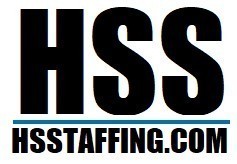Bruce Hurwitz November 7, 2025
How to Answer the Salary Question
THE OPINIONS EXPRESSED IN THIS ARTICLE ARE SOLELY THOSE OF THE AUTHOR.
Last week I wrote about the need to have the salary range included on job descriptions and I promised to follow-up with instructions on how to answer the salary question. I always keep my promises.
If the salary range is on the job description, it is safe to assume that the candidate is looking at the upper end of the range, while the employer is focused on the lower end. If there is no salary range then the candidate is flying blind, although there are websites that can provide insights.
Regardless, when asked a straight-forward question in an interview, the candidate should always provide a straight-forward response. This is especially true when the question is an obvious one.
Always let the employer/interviewer raise the salary issue. The way to respond depends on your situation.
If you are employed, you are on solid ground, and your answer is simple. “I am currently earning X. To make a move I would need at least a Y% increase. I also have to take into consideration that fact that I will have more responsibilities in this position than I currently have. Keep in mind that I am looking at a longer commute (tolls and wear and tear on my car), and then there is the issue of the benefits you offer. Currently my benefits package is A, B and C.” Then shut up! He who speaks next loses.
If you are recently unemployed, the above response should suffice. If you have been unemployed for a while, then your negotiating posture is weak(er). (You’re standing on wet sand, not solid ground.) So keep it simple:
“Depending on the benefits package, here is my budget. This is what I need NET. So, to get to GROSS I would need X% more.” (Ask your accountant what that should be.) No fooling around. You have done your homework. You are literally handing them your budget. From that document they will learn a great deal about you. Most importantly, they will learn how you prioritize.
Regardless of how you respond, referencing benefits always shows that you are will to negotiate. I once had a candidate accept a $20,000 drop in salary because, sadly, he had six children all of whom were taking rather expensive medications. The new employer’s health insurance plan more than made up for the difference.
Another time, I had a candidate willing to go from earning $500,000 to $150,000. (For the record, this was when it was legal to ask about salary history.) “How,” I asked her, “did she recommend I convince my client that she would actually stay on the job and not look for what she had been earning?”
This was a position for an in-house counsel. The candidates I was interviewing were all lawyers at major firms who were working 120-hour weeks. For them, it was a quality-of-life issue. They wanted to be able to spend time with their spouses and children.
Salary is never only about money. It’s the compensation package which is important. Don’t forget that!

How to Answer the Salary Question | Employment Edification